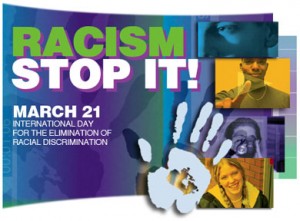 The United Nations’ (UN) International Day for the Elimination of Racial Discrimination is observed with a series of events and activities worldwide on March 21 each year. The day aims to remind people of racial discrimination’s negative consequences. It also encourages people to remember their obligation and determination to combat racial discrimination.
The United Nations’ (UN) International Day for the Elimination of Racial Discrimination is observed with a series of events and activities worldwide on March 21 each year. The day aims to remind people of racial discrimination’s negative consequences. It also encourages people to remember their obligation and determination to combat racial discrimination.
Background
The International Day for the Elimination of Racial Discrimination was established six years after an event, known as the Sharpeville tragedy or Sharpeville massacre, which captured worldwide attention. This event involved police opening fire and killing 69 people at a peaceful demonstration against the apartheid “pass laws” in Sharpeville, South Africa, March 21, 1960.
The UN General Assembly called on the international community to increase its efforts to eliminate all forms of racial discrimination when it proclaimed the day as a UN Day of observance in 1966. It also called on all world states and organizations to participate in a program of action to combat racism and racial discrimination in 1983. It held the World Conference against Racism and Racial Discrimination, Xenophobia and Related Intolerance in 2001. The UN continues its work to fight against all forms of racial intolerance.
Symbols
The UN logo is often associated with marketing and promotional material for this event. It features a projection of a world map (less Antarctica) centered on the North Pole, inscribed in a wreath consisting of crossed conventionalized branches of the olive tree. The olive branches symbolize peace and the world map depicts the area of concern to the UN in achieving its main purpose, peace and security. The projection of the map extends to 60 degrees south latitude, and includes five concentric circles.
Source: Text: timeanddate.com Image: sdp-vincovci.org
